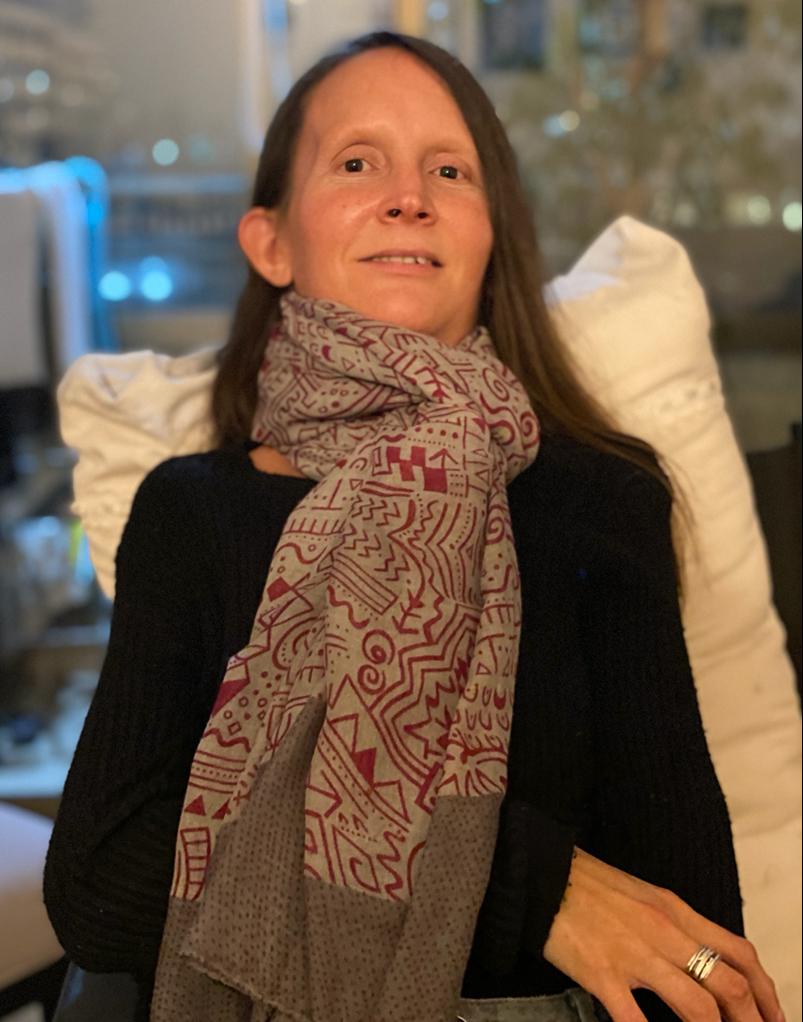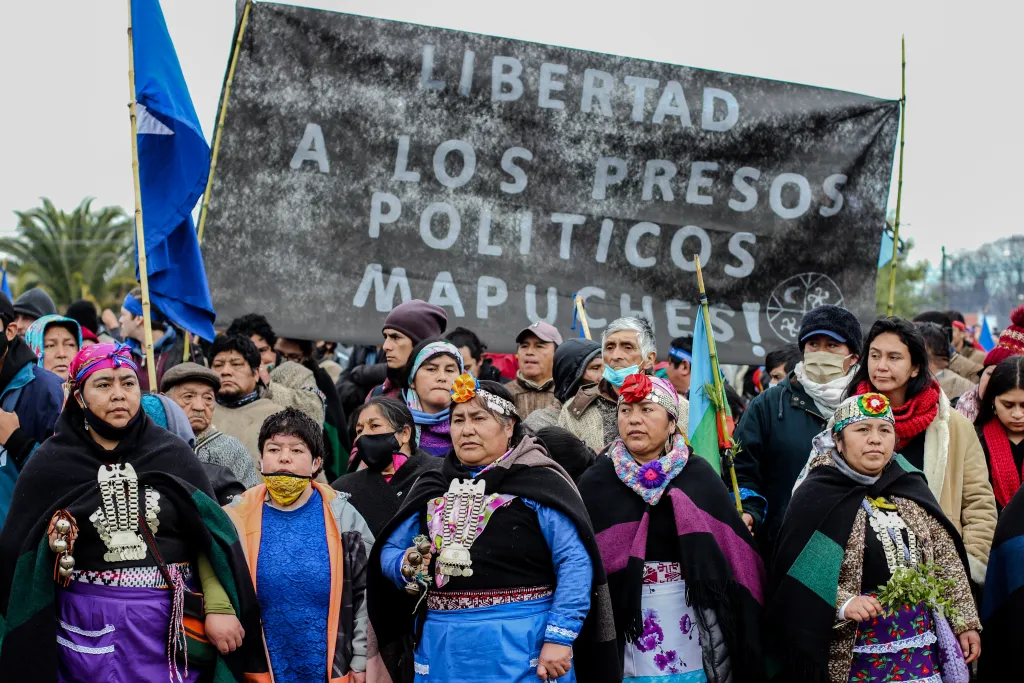“We have seen that the Constitution is not an immutable text, as they want us to believe”
- On 4 September, Chilean citizens made it clear that they do not want to approve the new text approved by the Constituent Assembly: of the thirteen million citizens who voted, 62% (7,882,958 votes) refused to do so and the remaining 38% (4,860,093 votes) did so. The surveys announced that the negative will prevail, but for many the outcome of the plebiscite has been a blow. One of them is Chilena Katharina Pavletich Heisig, 35, a member of the Broad Front and driver of the Aprob campaign. As explained to ARGIA, “Chile has renounced the historic possibility of a true radical transformation”. Now he says it's time for reflection and learning.

Katharina Pavletich did not expect “at all” that he would not accept the proposal of the new constitution with “this difference”, and confessed to ARGIA that he has taken the result with resounding clarity: “The refusal has been a harsh blow to guaranteeing our social rights, our dignity, equality, inclusion, women’s rights…” However, it is convinced that the constituent process has had a social impact and has opened a way of reflection. “It is good that Chile has seen that the constitution is not a rigid text that cannot be changed. Contrary to what they want us to believe, and although the text has deep roots since the time of Augustus Pinochet (1980), we have seen that we (citizens, workers, students, people with disabilities, pensioners) can decide on the content, something that until now was unthinkable in our country.”
Pavletich is a sociologist and has worked internally both in the constituent process and in the campaign of Bando, a candidate for the Constituent Assembly representing people with functional diversity. In fact, he is in the wheelchair because of an uncommon illness and is a feminist and political activist for inclusion, among other things militant of Commons, who participated in the elaboration of President Gabriel Boric's government program on disability and inclusion.

He states that the failure to advance the new constitution will harm all Chileans, but above all the excluded: “We are still marginalized, they do not see us. We still have no recognition, we do not exist.” The text prepared by 154 people of the Constituent Assembly described Chile as an equal, plurinational, social and ecological, progressive and feminist state. Pavletich therefore says that all the fundamental rights that the text recognized were left behind by the triumph of the negative. However, it considers that the process has also yielded positive results: “In the struggle of these years we, invisible so far, have taken an active position in favor of change. Putting ourselves in the front row of the struggle has made it start to talk about us, to keep us in mind.” He explains that this principle needs a continuation and ensures that they lack much to fight.
What has failed?
The sociologist has emphasized two consequences of the post-lost reflection, as a reason for not having won the yes: I appreciate that the design of the campaign had “important mistakes” and that Carlos supporters promoted boycotts and fake news.
He considers that the media presence of the supporters of the refusal was a “key” to win the plebiscite, and stresses that the Euskaltel campaign accounted for 80% of the resources: “They had the support of the political and economic elites, and it is not in their interest to change the system because they are fed there. Therefore, they had a greater advertising capacity and a great presence in the media”. He criticizes the launch of a “defamation campaign,” spreading fake news, among others. He warns that this strategy has gained prominence in the last decade in the campaigns of the right tip of the world, not only in Chile.
“In the struggle of these years we, invisible so far, have taken an active position in favor of change”
Pavletich compares the campaigns of Consiente and Franco to make the failure understand. “The Rejection campaign focused primarily on the policy of fear of change, uncertainty and mistrust towards a different system. They used simple phrases like ‘they’re coming communists’ or ‘They’re going to become Venezuela’, and we haven’t invented dealing properly with those messages.”
Subscrito supporters took another path, which has not been enough to attract the majority of the population, but Pavletich has valued the volunteers’ work. “Far from the economic resources it had, it was possible to extend a campaign across the country from thousands of homes and villages that, thanks to a large mass of volunteers, were willing to give time to a project of hope and change. Without them it would have been impossible to reach where we are, and without them it will not be possible to continue the battle that now has to be done”, he stressed.
Resistance to transformation
According to some experts and the media, Chileans were not prepared to launch a progressive, feminist and plural constitution. Pavletich believes that although he understands that the new proposal is “different, breaking and transforming” it generates fear and mistrust, he does not accept that Chileans are not willing to change. Believe in pedagogy “to give confidence to the majority who suffers from the current system”, because the majority will benefit from change, as the sociologist remembers. However, it recognizes that achieving “what seems so simple” is not easy, “especially when rejections feed fear desperately.”
But remember that there is a desire for change. On October 18, 2019, the Chilean people triggered the uprising promoted by the students and hence the constituent process. Moreover, he stresses that on 4 September, despite the refusal, protests for change follow: “They are a reflection of the change of system that the Chilean people need and demand.”
“The rejections used simple phrases like ‘they’re coming communist’, and we haven’t been right to deal with those messages.”
Another example of the desire of the Chilean people is that 80% of those who voted on 25 October 2020 called for the modification of the dictatorial constitution of Pinochet and the constitution of a Constituent Assembly. “Since then there have been demands for change that demand dignity for Chile and social justice,” he says. In fact, Left President Boric gave the results of the plebiscite and immediately announced the opening of a new constituent process. Pavletich is clear on the way forward: “Borice has announced a new constituent process that will start from the congress, but that must respond to a popular, participatory, egalitarian and democratic process.”
Failure sees it as one step further along this road and claims that it is time to “add and replenish forces”, hoping to have a new constitution. “Our job is to ensure that the new proposal does not lose content, that it maintains the essence of change and that social interest overlaps the interests of the elites.” Pavletich tells us that he will continue to fight until the law expressly recognizes the rights of excluded persons.
One of the main conflicts of Chilean President Gabriel Boric since the beginning of his mandate has been the conflict in the territory of Araucania in the south. In recent years, the struggle between the Mapuches and the Chilean state, among others, for land ownership has... [+]

























